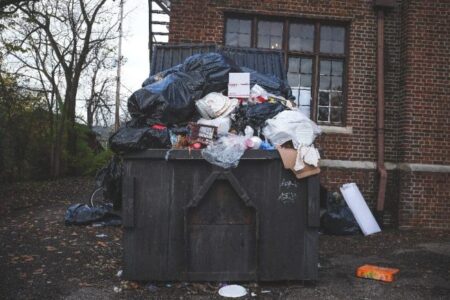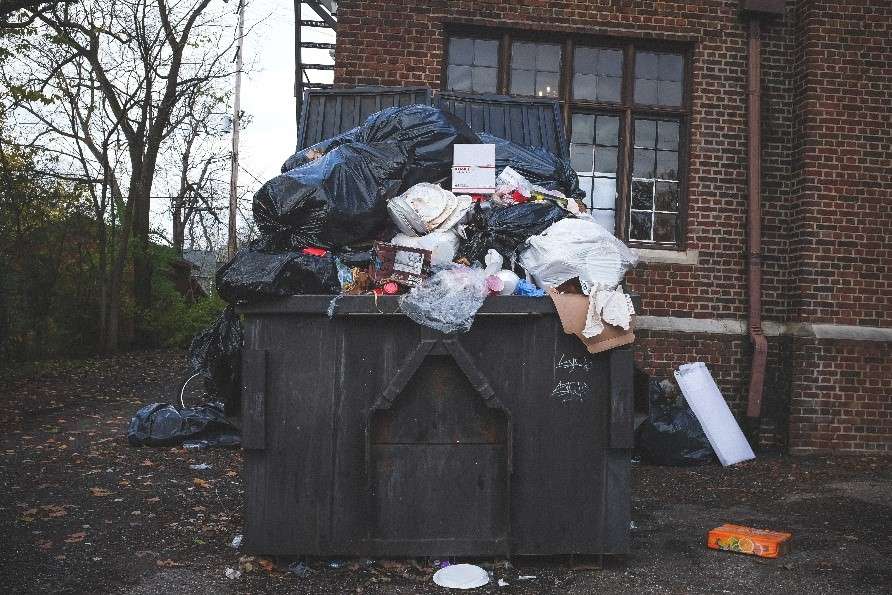Waste can be distinguished into the following categories:
Liquid Waste, Solid Waste, & Hazardous waste, Medical/clinical waste, Electrical waste (E-waste), Recyclable waste, Constructions, and demolition debris, Nondegradable and Green waste. This waste has to be disposed of separately, as, at the later stage, there is too much waste collected and take more time to segregate by the rag pickers or waste management or its dumped nearby city landfill.
- Liquid or solid household waste
The wastes from residential areas are stated as domestic waste-waters. These wastewaters come from our day-to-day household and include those from food preparation, washing, bathing, and toilet usage. These wastes are mainly household or can also be classified as black bag waste which comes from the house. These wastes are wet and solid type in nature they can consist of Vegetables, glass bottles, leftover food, etc.
- Hazardous waste
Hazardous waste can pose a serious threat to humans and other living beings. Hazardous waste produces from many sources, ranging mostly from industrial manufacturing process and production, wastes from batteries and come in many forms, including liquids, solids gases, and sludges.
- Medical/Clinical Waste
Wastes generated from health care facilities such as hospitals, physician’s offices, Dental clinics, blood banks, medical research facilities, veterinary hospitals/clinics, and laboratories. Sharps-inflicted injuries on the bodies. Toxic exposure to pharmaceutical products, antibiotics, and cytotoxic drugs. Chemical infection arising out of disinfection, sterilization, or waste treatment process. Thermal injuries and infection occurring due to open contact with burning and the operation of medical waste incinerators and radiation.
- Electrical waste (E-waste)
Electronic or e-waste describes wastes produce from electrical or electronic devices. Used electronics which are refurbishment, reuse, resale recycling through material or disposal are also e-waste. Processing of e-waste in developing countries can lead to ill-effect on human health and environmental pollution. Electronic scrap products such as CPUs, computer parts, bio-hazards machines, medicals devices, heavy machinery, wires, etc. It contains harmful material as lead, cadmium, beryllium, or brominated flame retardants. And can cause significant risk to the health of workers and their communities.
- Recyclable waste
Recyclable waste is the items mainly used in households such as plastic waste, paper waste, glass waste, metal waste, etc. Waste management companies help in recycling this kind of product. Plastic waste is commonly recycled due to the extensive use of plastic in all types of products. Due to recycling, there is surged in the economic cycle.
- Constructions and demolition debris
The waste generated from the construction, renovation, repair, or demolition of houses, a large building, roads, bridges, piers, and dams repairs or construction, road repair. Usually, these wastes are bulky and heavy materials which takes time to dispose of the waste. C&D waste consists of wood, gypsum, steel, concrete, plaster, and metal.
- Green waste
Green waste, also known as “biological waste”, such as branches, leaves, grass, tree limbs, waste of vegetables, bread, and grains as well as paper waste. Green waste can be classified as organic waste or waste from the forest, food market, or gardens, any biodegradable materials that grow in your garden are classed as green waste. Waste is of three types Liquid or solid waste, Hazardous waste, Medical/clinical waste, Electrical waste (E-waste), Recyclable waste, Constructions, and demolition debris, Nondegradable, and Green waste. This waste has to be disposed of separately, as at the later stage, there is too much waste collected and take more time to segregate by the rag pickers or waste management or its dumped nearby city landfill.



